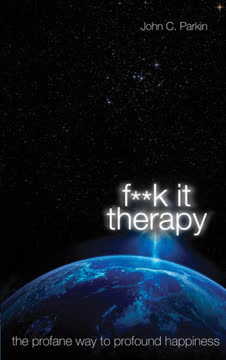Key Takeaways
1. Recognize that peace is not a future state, but achievable now
Just... relax.
Peace is present. Many people believe they'll find peace when they achieve certain goals or milestones. This "I'll be at peace when..." mentality keeps us in a constant state of striving, never truly experiencing peace. The truth is, peace is available to us right now, in this moment.
Practical relaxation. One simple way to access peace is through relaxation. Instead of complex techniques, try this: Just relax. Then go back to not being relaxed. Then relax again. Notice the difference between these states. This exercise helps train your brain to recognize and access relaxation quickly.
Mindful awareness. Developing a "thermostat" for your internal state is crucial. Regularly check in with yourself, asking "How am I feeling?" without judgment. This practice increases self-awareness and allows you to adjust your state more effectively, leading to more frequent experiences of peace.
2. Embrace the power of "F**k It" to reduce care levels
Saying 'F**k It' to anything can easily confuse you (if being 'at peace' is what you're after – and, having bought the book, there's a good chance that it is), but it can also offer a glimmer of the freedom to come when you start to care less about things; even the very things you most want.
Caring less, not careless. The concept of "F**k It" isn't about becoming apathetic or irresponsible. Instead, it's about reducing the intensity of care for things that cause unnecessary stress. This reduction in care levels can lead to greater peace and freedom.
The care tachometer. Think of your care levels like a car's tachometer:
- Too high: Straining and stressing
- Optimal range: Comfortable and effective
- Too low: Stalling into depression
The goal is to find a balance where you care enough to engage with life meaningfully, but not so much that you're constantly stressed. Saying "F**k It" helps recalibrate your care levels to this optimal range.
3. Allow yourself to experience all emotions, positive and negative
F**k It to positivity and optimism. You can give in to your inner grump, your Eeyore within. Don't resist, and see how much better you feel.
Emotional authenticity. While it's generally better to be positive, suppressing negative emotions can lead to internal conflict and stress. Allowing yourself to experience and express all emotions, including negative ones, can lead to greater overall peace.
Natural flow of emotions. When we accept our negative emotions as natural and temporary, they tend to move through us more quickly. This acceptance can lead to a more genuine and sustainable form of positivity.
Benefits of embracing all emotions:
- Reduced internal conflict
- Increased self-acceptance
- More authentic relationships
- Greater emotional resilience
4. Practice self-awareness and mindfulness in daily life
There's also the possibility of being in a thought process and being aware of the thoughts – as if from the outside – simultaneously.
Three modes of mind. The author describes three modes of mental activity:
- Lost in thoughts
- Aware of thoughts
- Absence of thoughts
Cultivating awareness. By regularly observing which mode you're in, without judgment, you can develop greater self-awareness and mindfulness. This practice can lead to more frequent experiences of peace and presence.
Bringing meditation to life. Instead of formal meditation, try incorporating mindfulness into everyday activities. For example, simply sitting and drinking tea can become a powerful practice for cultivating peace and presence.
5. Accept that there will always be "somethings" disturbing your peace
There's always something...
Persistent disturbances. No matter how skilled we become at finding peace, life will always present challenges and disturbances. These "somethings" can include:
- Family issues
- Financial concerns
- Health problems
- Geo-political events
- Environmental worries
- Work-related stress
Accepting the inevitable. Rather than striving for a perfect, undisturbed peace, aim to be at peace with the fact that disturbances will occur. This acceptance paradoxically leads to a deeper, more resilient form of peace.
6. Cultivate authenticity while allowing for necessary inauthenticity
I'd be inauthentic if I didn't admit that I'm not always authentic.
Balancing authenticity. While being authentic is generally beneficial, there are times when some degree of inauthenticity is necessary or even helpful in social situations. The key is to find a balance that feels right for you.
Embracing imperfection. Recognizing that perfect authenticity is neither possible nor always desirable can lead to greater self-acceptance and peace. Allow yourself to be authentic when it matters most, and don't judge yourself harshly for moments of inauthenticity.
7. Understand peace as a space through which all experiences flow
There was this space, and the thoughts and the sounds and the feeling of the sunshine and any emotions or memories, or sights of the other people in the group, were all just gently blowing through this space, like the breeze from the sea below that was gently blowing through our seated group.
Peace as a container. Rather than seeing peace as a specific state or emotion, consider it as a space or container through which all experiences flow. This perspective allows for a more inclusive and accepting approach to life's varied experiences.
Equanimity in diversity. When we view peace in this way, we can remain equally at ease with pleasant and unpleasant experiences. Thoughts, emotions, sensations, and external events are all seen as temporary phenomena moving through the space of awareness.
Practical application:
- Practice observing your experiences without getting caught up in them
- Notice the space or awareness in which all experiences occur
- Allow experiences to come and go without resistance
8. Integrate both left and right brain hemispheres for true peace
Level 3, then, is best described as a form of 'allowing of movement' between the two hemispheres, in a perfectly natural way.
Hemispheric balance. The left brain is associated with logic, language, and future-oriented thinking, while the right brain is linked to creativity, openness, and present-moment awareness. True peace involves integrating both hemispheres.
Beyond either/or thinking. Instead of seeing peace as purely a right-brain state, aim for a fluid integration of both hemispheres. This allows for:
- Practical problem-solving and planning
- Creative insights and intuition
- Present-moment awareness
- Future-oriented goal-setting
Cultivating integration:
- Practice activities that engage both hemispheres (e.g., journaling, art, music)
- Alternate between analytical and intuitive approaches to challenges
- Develop mindfulness while engaging in logical tasks
Last updated:
FAQ
1. What is "F**k It - Do What You Love" by John C. Parkin about?
- Core Message: The book explores how saying "F**k It" can help you let go of stress, expectations, and societal pressures, allowing you to find peace and do what you truly love.
- Three-Level Structure: Parkin presents a "game of life" with three levels: chasing peace through achievements (Level 1), finding peace in the present (Level 2), and being at peace with life as it is, including its messiness (Level 3).
- Personal and Practical: The book combines personal anecdotes, practical exercises, and philosophical insights to guide readers toward a more relaxed, authentic, and fulfilling life.
- Humorous and Relatable: Parkin uses humor, relatable stories, and a conversational tone to make deep concepts accessible and engaging.
2. Why should I read "F**k It - Do What You Love" by John C. Parkin?
- Break Free from Stress: The book offers a liberating approach to dealing with stress, anxiety, and the constant pressure to achieve or be perfect.
- Accessible Wisdom: Parkin distills spiritual and psychological insights into practical, everyday language, making them easy to apply.
- Permission to Let Go: It gives readers permission to care less about unimportant things and focus on what truly matters to them.
- Transformative Perspective: The book promises not just self-help tips, but a shift in perspective that can lead to lasting peace and contentment.
3. What are the three levels of peace in "F**k It - Do What You Love" and how do they work?
- Level 1 – "I’ll be at peace when…": This level is about chasing peace through external achievements or milestones, always postponing contentment to the future.
- Level 2 – "I can be at peace now": Here, the focus shifts to finding peace in the present moment through relaxation, gratitude, and mindfulness practices.
- Level 3 – "Fk It. Be at peace with life, just as it is":** The highest level involves accepting both peace and stress as natural parts of life, embracing everything as it comes without resistance.
- Progression and Paradox: The book guides readers through these levels, ultimately encouraging a paradoxical acceptance that includes both striving and letting go.
4. How does the "F**k It" philosophy help you do what you love, according to John C. Parkin?
- Letting Go of Expectations: By saying "F**k It," you release the need to meet others’ expectations or societal standards, freeing yourself to pursue what you genuinely enjoy.
- Reducing Fear and Anxiety: The philosophy helps you move past fear of failure, judgment, or not being good enough, which often blocks people from following their passions.
- Embracing Authenticity: "F**k It" encourages you to be more authentic, honest, and true to yourself, which is essential for discovering and doing what you love.
- Practical Application: Parkin provides exercises and real-life examples to show how adopting this mindset can lead to concrete changes in your career, relationships, and daily life.
5. What are some common "I’ll be at peace when…" traps described in "F**k It - Do What You Love"?
- Chasing External Goals: Examples include thinking you’ll be at peace when you get a new job, lose weight, find love, or achieve financial security.
- Never-Ending Cycle: Each achievement brings only temporary peace, quickly replaced by a new goal or worry, creating a perpetual cycle of dissatisfaction.
- Societal Conditioning: Many of these traps are reinforced by cultural messages about success, productivity, and self-worth.
- Personal Anecdotes: Parkin shares humorous and poignant stories from his own life to illustrate how these traps play out and why they don’t lead to lasting peace.
6. What practical methods and exercises does John C. Parkin recommend for finding peace now (Level 2)?
- Relaxation Techniques: Simple practices like consciously relaxing your body, sitting quietly, or drinking tea mindfully can quickly shift you into a peaceful state.
- Gratitude Practice: Listing things you’re grateful for helps shift focus from what’s lacking to what’s already good in your life.
- Switching Off Distractions: Parkin suggests turning off your phone and embracing moments of stillness to reconnect with yourself.
- Awareness of Mind Modes: He introduces the idea of three mind modes—being lost in thought, being aware of thoughts, and experiencing gaps between thoughts—to help cultivate present-moment awareness.
7. How does "F**k It - Do What You Love" address the challenge of maintaining peace when "there’s always something"?
- Inevitable Disruptions: The book acknowledges that family issues, money worries, health problems, and world events will always arise to disturb your peace.
- Acceptance over Control: Instead of trying to eliminate all sources of stress, Parkin encourages accepting that "there’s always something" and learning to find peace amidst the chaos.
- Humor and Perspective: Using humor and perspective shifts, he helps readers see these disruptions as part of the human experience rather than personal failures.
- Practical Tips: He offers "hacks" and mindset shifts for dealing with recurring disturbances, such as focusing on what you can control and letting go of the rest.
8. What is the significance of "F**k It" in Level 3, and how does it relate to acceptance and peace?
- Radical Acceptance: At Level 3, "F**k It" becomes a tool for radical acceptance—not just of the good, but also of stress, failure, injustice, and even your own negative emotions.
- Caring Less, Not Careless: It’s about caring less about things that don’t truly matter, without becoming apathetic or indifferent to life.
- Embracing Paradox: Parkin encourages embracing contradictions—being both caring and detached, positive and grumpy, good and imperfect.
- Peace Includes Everything: True peace, according to Parkin, is not the absence of problems but the ability to be at peace with whatever arises.
9. How does John C. Parkin use humor and personal stories in "F**k It - Do What You Love" to convey his message?
- Relatable Anecdotes: Parkin shares stories from his own life—childhood dreams, family mishaps, and personal struggles—to illustrate key concepts in a down-to-earth way.
- Self-Deprecating Humor: He often pokes fun at himself and the self-help industry, making the book approachable and less preachy.
- Lightening Serious Topics: Humor is used to make heavy subjects like stress, failure, and mortality more digestible and less intimidating.
- Engagement and Accessibility: This storytelling style keeps readers engaged and helps them see themselves in the examples, making the advice more actionable.
10. What are the key takeaways and actionable advice from "F**k It - Do What You Love"?
- Let Go to Find Peace: Lasting peace comes not from achieving more, but from letting go of the need for things to be different.
- Practice Presence: Simple daily practices—relaxation, gratitude, mindful tea-drinking—can help you access peace right now.
- Accept Life’s Messiness: Embrace both the ups and downs, knowing that peace is possible even when life is imperfect.
- Say "Fk It" to Unhelpful Pressures:** Use the "F**k It" mindset to release unnecessary worries, expectations, and self-judgment, freeing yourself to do what you love.
11. What are some of the best quotes from "F**k It - Do What You Love" and what do they mean?
- "Saying ‘Fk It’ is as powerful as all the Eastern spiritual practices I’d been studying for 20 years."** – Letting go can be as transformative as any formal spiritual discipline.
- "The only logical answer is to see that it’s possible to stop running – to let the wheel slow down – and find peace in the present." – Chasing peace externally is futile; it’s available now if you stop striving.
- "Peace is only a thought away, and all we have to do to access it is silence the voice of our dominating left mind." – Inner peace is always present beneath mental chatter.
- "Fk It. Be at peace with life, just as it is."** – The ultimate message: embrace life’s reality, with all its imperfections, to find true peace.
12. How can readers apply the "F**k It" philosophy from John C. Parkin’s book to everyday challenges and setbacks?
- Use "Fk It" as a Reset:** When faced with stress, failure, or disappointment, consciously say "F**k It" to release attachment and regain perspective.
- Accept Both Success and Failure: Recognize that both are natural parts of life, and neither defines your worth or lasting happiness.
- Find Peace Amidst Difficulty: Apply the philosophy to be at peace with stress, injustice, hurtful people, and even global crises, knowing that peace is always available beneath the surface.
- Live Authentically: Let go of trying to be perfect, positive, or always in control, and instead embrace your authentic self and the present moment.
Review Summary
"Fk It"** receives mixed reviews, with many readers criticizing its repetitive content, poor writing style, and excessive self-promotion. Some find the core message of letting go and pursuing one's passions inspiring, but feel it's stretched too thin. Critics argue the book lacks substance, is poorly edited, and offers impractical advice. A few readers appreciate the humor and find the exercises helpful, but overall, the book is seen as self-indulgent and fails to deliver on its premise of providing meaningful guidance for life changes.
Similar Books
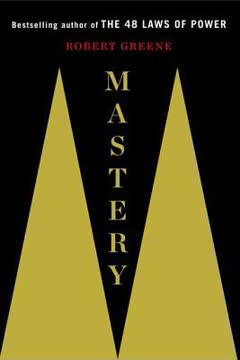
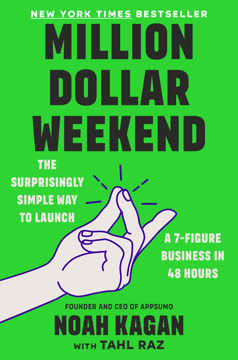


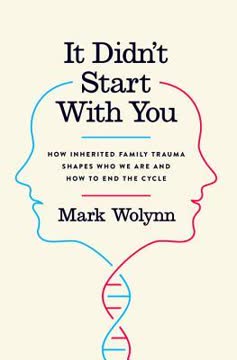
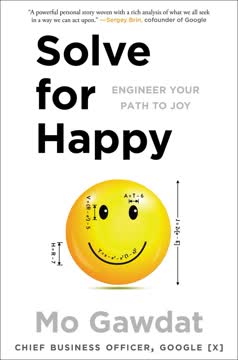


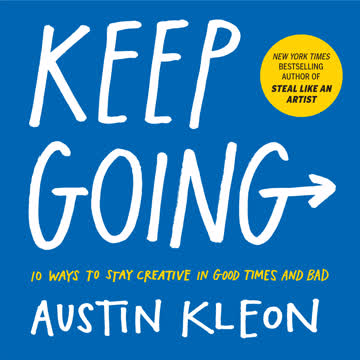

Download PDF
Download EPUB
.epub digital book format is ideal for reading ebooks on phones, tablets, and e-readers.


